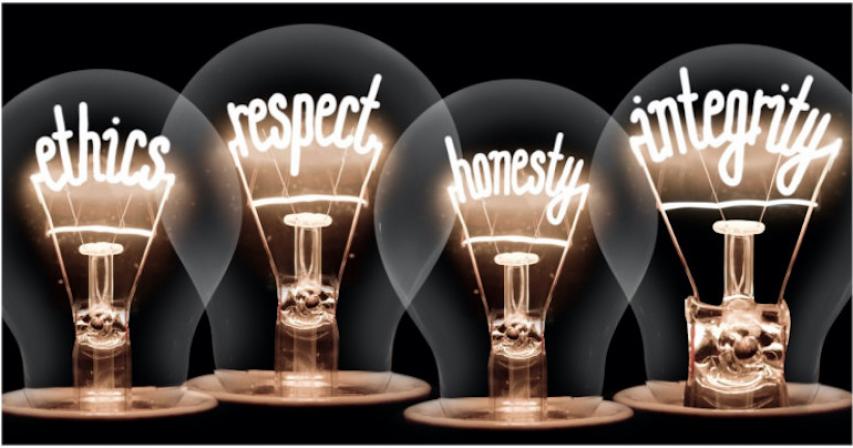From Artificial Intelligence (AI) to Blockchain to Quantum Computing, the explosive growth of new digital technology defines the current Fourth Industrial Revolution. New technologies can be both powerful tools to help organizations in their digital transformation or tools that bring adverse and unwanted ramifications.
Ethics by Design is an organizational approach to responsible use of technology, which details steps organizations can take for the ethical use of technology.
“Ethics will be crucial to the success of the Fourth Industrial Revolution. The ethical challenges will only continue to grow and become more prevalent as machines advance. Organizations across industries – both private and public – will need to integrate these approaches,” said Kay Firth Butterfield, Head of Artificial Intelligence (AI) and Machine Learning (ML), World Economic Forum.
International business leaders now can shape decisions to prompt better and more ethical behavior. The report outlines steps and makes recommendations that have proven more effective than conventional incentives such as compliance training, financial compensation, or penalties. The implementation of technology can be complex when all aspects of its potential effects are considered. The report aims to guide the conversation and implementation of technology for positive impacts on society. According to the new report, over the past eight years, the technology sector has experienced a steeper decline in trust compared to any other sector.
Technology development cannot be done in a vacuum; its social impact has to be taken into consideration. Organizations that use technology ethically consider the potential harm to humans and society at every stage of their decision-making processes.
There are three critical components to this comprehensive approach:
-
Attention: Timely, refocused attention on the ethical implications of the technology. Attention techniques and examples include reminders, checklists, and frequent ethics refresher training – focus on methodology
-
Construal: Individuals interpret their work in ethical terms. Construal techniques and examples include the deliberate use of ethically freighted language in mission statements – emphasis on culture. Leaders are responsible for promoting ethical decisions by providing the corporation’s vision, purpose, and values. Companies have found success by framing issues beyond purely legal or regulatory compliance terms
-
Motivation: Encouraging pro-social actions, setting social norm nudges and other culture-changing activities can be used to promote ethical behaviours. The culture of organizations positively influences motivation. It can be best sustained through robust, self-reinforcing incentives, and operational structures, such as conscious community building within and across company teams and programmes to showcase ethically exemplary employees
“Deloitte, working with the World Economic Forum and the Markkula Center for Applied Ethics, sees this as a crucial time for organizations reliant on emerging technologies. Recent advances provide business opportunities but also leave many organizations struggling to make ethical decisions around the use of technology that are true to their organizational values, often leading to unintended consequences," said Beena Ammanath, Executive Director, Deloitte AI Institute and Trustworthy and Ethical Technology.
"This report will not only help organizations identify those challenges, but, using behavioral science as a foundation, enable leaders to build and maintain frameworks for technology ethics that put human values first."
“The report is a wonderful example of blending insights and research to identify models organizations can use to help employees learn and be comfortable with ethical principles,” said Don Heider, Executive Director, Markkula Center for Applied Ethics. “Executives will find practical, specific recommendations enabling their organizations to be intentional in their efforts to embed ethical thinking into their cultures and their practices.”
The research was supplemented by in-depth interviews with organizational executives spanning seven countries. Findings from these interviews are summarized in the report as illustrative examples of ethical behavior with technology in action.
The report is part of the Organizational Design workstream of the World Economic Forum’s Responsible Use of Technology initiative. Trust is essential to every organization's success. The way technology is leveraged in any part of the organization represents an opportunity to gain or lose that trust. Advanced technologies have led to increasing benefits for society. However, they come with inherent risks that are often unregulated --and even unknown.
According to Deloitte, disruptors and enablers are categorized by a set of information and communication technologies (ICT), including Artificial Intelligence (AI), blockchain, cloud, cyber, the Internet of Things (IoT), robotics, 5G, augmented reality, virtual reality, and more.ICT can be defined as a disruptor or enabler that produces an outcome or accomplishes an objective. Under this definition, data is not a technology per se, but is omnipresent across issues that have to do with data-related concerns.
Similarly, social media is not considered a technology, but in fact, represents an application of many technologies. Impacts and implications surface when the design or deployment of a disruptive or enabling technology challenges core ethical values.
The main challenge is to remain distinctly human in a technology-driven world.

Comments